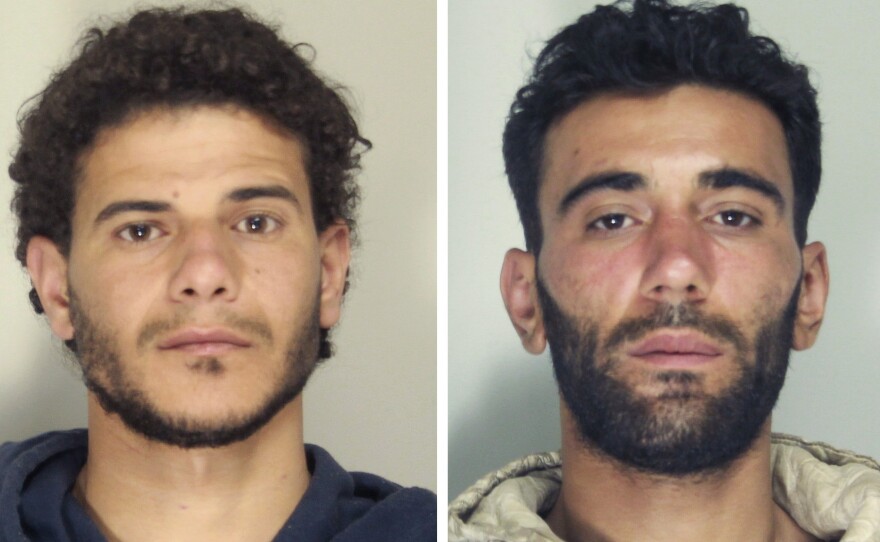
Italian authorities have arrested the captain and a crew member of the boat that capsized in the Mediterranean Sea over the weekend. The pair are among the boat's 28 survivors; the United Nations says more than 800 would-be migrants died after cramming themselves onto the 66-foot boat.
Tunisian captain Mohammed Ali Malek, 27, and Syrian crew member Mahmud Bikhit, 25, face charges of multiple manslaughter and aiding illegal immigration in the calamity that struck this weekend. Along with some other survivors, they were brought to Catania, Sicily, where the two are now in custody.
Citing sources with knowledge of the inquiry, Italian news agency ANSA says, "The survivors said that the trafficker who was at the command of the boat piloted it carelessly in the final moments as he was trying to hide and not be recognized as a smuggler."
"Prosecutors said hundreds of migrants were locked in the hold unable to escape when the boat tipped over," NPR's Sylvia Poggioli reports from Rome. "Migrants on deck are believed to have rushed to one side of the boat when they saw a merchant vessel approaching."
We're also learning more about the passengers of the doomed fishing boat, from the U.N. Refugee Agency:
"According to survivors interviewed by UNHCR, the boat departed from Tripoli in Libya on Saturday morning with some 850 people on board, including 350 Eritreans as well as people from Syria, Somalia, Sierra Leone, Mali, Senegal, Gambia, Ivory Coast and Ethiopia."
An estimated 21,000 migrants have survived similar journeys to Europe in 2015, the International Organization for Migration says. Depending on the death toll from this weekend's sinking, at least 1,800 have died.
Smugglers can make huge amounts of money from the migrants' desperation. The IOM's Leonard Doyle told All Things Considered Monday, "We hear reports that one over-packed shipping vessel could bring in revenue in the order of between 4 and 7 million dollars. It depends, obviously, on the size of the vessel and the numbers of people aboard."
In Madrid, NPR's Lauren Frayer reports that European countries are promising to change how they approach the flood of immigrants leaving North Africa in the hopes of a better life in the European Union. After an emergency meeting Monday, the EU announced a 10-point plan.
"It includes trying to destroy human traffickers' boats in North Africa, before they take off," Lauren tells our Newscast unit, "and beefing up search and rescue operations — paid for by Europe. That's something some EU states have been opposed to, for fear it'll encourage more migration."
On Monday, U.N. Secretary-General Ban Ki-moon called the migrants' deaths a "shock to the global conscience."
Copyright 2015 NPR. To see more, visit http://www.npr.org/.






